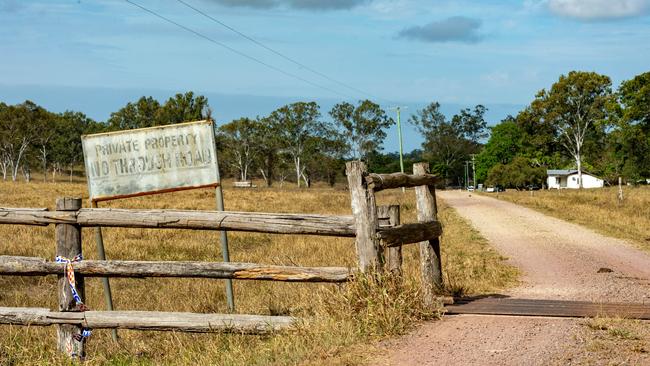Rene Latimore murder: Teen charged over death to make bail bid
A teenager being held in custody on a charge of murdering Rene Latimore will make a bold legal move. If convicted he may only face 10 years jail.
Police & Courts
Don't miss out on the headlines from Police & Courts. Followed categories will be added to My News.
A teenager being held in custody on a charge of murdering Rene Latimore will make a freedom bid.
The 17-year-old boy may only have to serve up to 10 years jail if convicted of murder.
The case had been listed for a bail application on Thursday in the Childrens Court of Queensland while it was sitting in Mackay.

But the court heard the matter could not proceed because of “information that’s arisen” that morning.
The teen’s barrister said he did not want to “abandon” the application and asked for it to be listed on another date.
Ms Latimore was reported missing from the Koumala area on August 18.
A police search found a body more than a week later at Ilbilbie on August 29 and forensic tests identified the deceased as the 31-year-old West Mackay mother.
Following a targeted police investigation, a 17 year old was arrested and charged with her murder on November 26 and the case was briefly mentioned in Mackay Childrens Court in a closed sitting that same day.

For adults, bail on a murder charge can only be determined by a Supreme Court Justice.
However under legislation a Childrens Court Judge has the same powers in determining bail for a juvenile charged with murder.
Legal expert Bill Potts said juvenile bail matters could be incredibly complex.
“It used to be that 17 year olds were treated as adults,” he said.
The maximum penalty for murder is generally life, but Mr Potts said juveniles could get 10 years.
“It’s a sliding jurisdiction, they take into account a number of things including the actual age at the time, any medical, social, health issues, mental conditions, psychiatric conditions, the nature and type of offending,” Mr Potts said.
Under the Juvenile Justice Act, Mr Potts said, there were two questions that had to be determined, even with a murder charge.
“The safety of the community, that‘s primary, and secondly whether there are conditions such as removing them from the jurisdiction,” he said.
He added there were also other factors taken into consideration for juveniles charged with a crime.
“The theory being that kids brains aren’t fully formed so they may understand the nature of the crime but may not necessarily foresee the shattering effects … of it or be able to control themselves, so there are significant issues,” he said.





